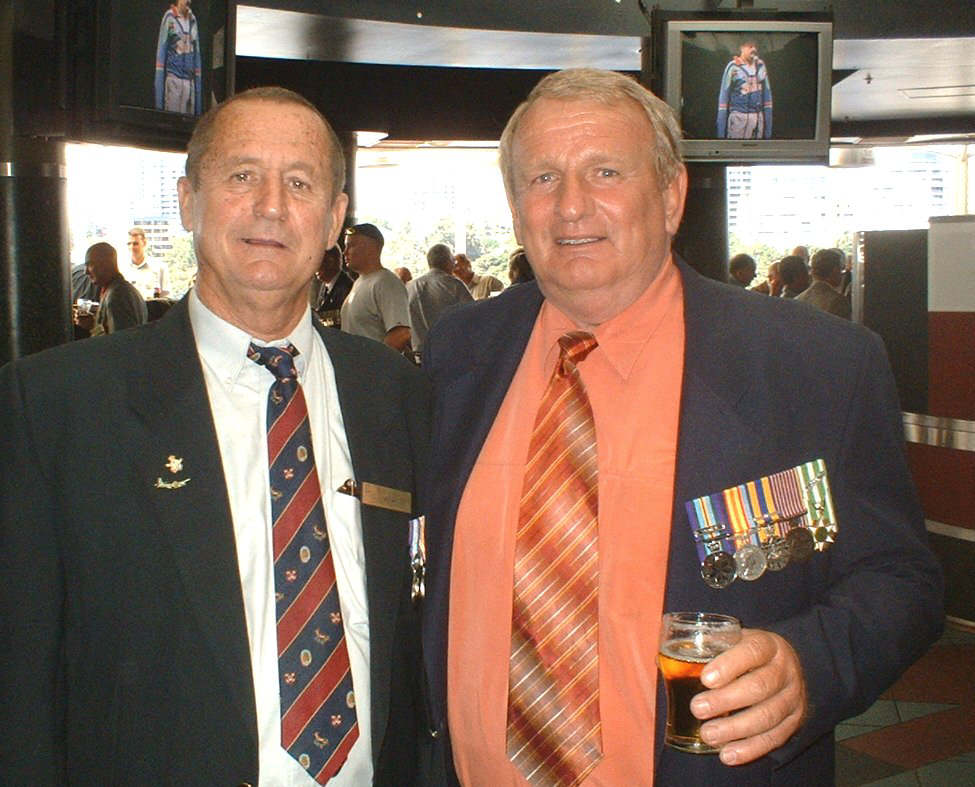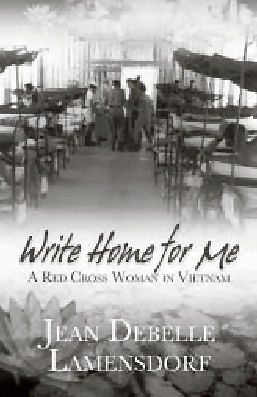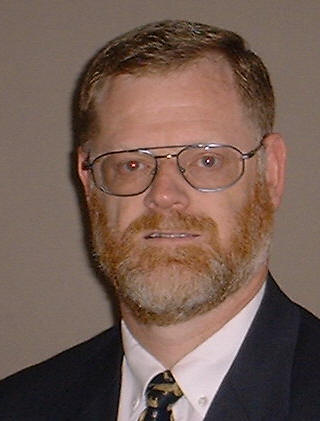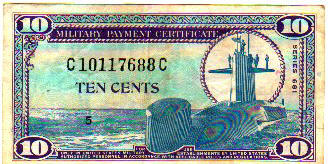|
Radschool Association Magazine - Vol 20 Page 13 |
||
|
Bill Johnston and Pete DeJonge, two ex 35/38 Sqn doggies, after an Anzac Day march in Brisbane, a little while ago...... |
A Good Read
Write Home for Me, was
published by Random House Australia in April
2006, and
She had planned
to report on the war in spare moments, but there were none. For one year
she lived in the spotlight; the only Australian woman among 5,000 men (WOW - just think if that was
reversed...how would you like to be the only male among 5,000 women.... tb).
Jean paints a richly detailed picture of life in war-torn Vietnam in the
mid-1960s. Her book tells of the daily struggle to work in the hospital
wards of a tented camp built on steep, high sandhills; of floods and
stifling heat; of scorpions, vipers, rats larger than cats, and of an
epidemic of bubonic plague. Trigger
 n
in the book on a number of occasions. n
in the book on a number of occasions.
She tells of the resilience of the soldiers in the face of daily atrocities, and of the medical personnel (including the Americans who cared for the Australians as their own) fighting to save and to rebuild shattered lives. It is also the story of the Vietnamese, who had not known peace for generations, struggling to maintain their traditions in the face of brutal hardship. From diaries, letters and Red Cross reports, Jean has meticulously researched and written a story not only of tragedy but also of the hope and humour that help people overcome adversity.
After Vietnam, she returned to Australia where she worked as the editor of several national women’s magazines, including Woman's World, before moving to New York in 1980 where she was the North American syndications manager for The Sydney Morning Herald. In the US she met and married John Lamensdorf.
As recognition for her book, in 2006 she was awarded the Distinguished Service Award of the Penn’s Grant Chapter of the Colonial Dames XVII Century, whose previous honorees have included James Michener. She was also awarded the Chapel of Four Chaplains Legion of Honor, whose other notable recipients include Presidents Truman, Eisenhower, Carter and Reagan, and Bob Hope. All very heady stuff for a good Aussie sheila born in Port Pirie and raised on a farm outside Tamworth! Jean gets home to Oz at least every two years, and looks forward to being at the 2 Field Ambulance Reunion in Adelaide in October.
Copies of the book are no longer readily available, but can be ordered through any good bookshop for $32.95 RRP
|
|
|
Kung Chow called his boss and said: "Hey, boss I not come work today, I really sick. I got headache, stomach ache, sore throat, leg hurt, I not come work."
The boss says: "Kung Chow I really need you today. When I feel sick like this, I go to my wife and tell her to give me sex. That makes me feel better and I can go to work. You should try that."
Two hours later Kung Chow calls again: "Boss, I do what you say and I feel great, I be at work soon. You got nice house. |
||
 Peter Nelms - but we don't know where or when.
Peter Krieg - but once again, we don't know where or when, hopefully someone will help us out |
||
Anyone who was in Vietnam will have seen plenty of these and back in the late 60's, early 70's, one would buy you heaps. They were printed by the American Armed Forces and issued to their forces (and also to other armed forces serving with the US) as pay in lieu of US dollars. The MPC was legal tender on base and the idea was to stifle the black market in the local economy, however, it was amazing the number that were traded in Vung Tau proper (if you were in the Dat or Phan Rang, was it the same there?? - tb) and in fact they nearly became the legal tender. Every now and then the US would change the colour of the notes and issue new ones which immediately rendered the old ones useless. Military personel could exchange their old ones for the new colour, but the locals couldn't - but it was amazing how the locals knew when the colour change was about to happen and the soon to be defunct MPC would be 'sold' by the locals to Military blokes, at a discount rate, for the local currency, which at the time was the piastre. |
||

 topped the best-seller list in South Australia
two weeks after publication, and in the United States the American
National Federation of Press Women awarded it first prize for best
non-fiction book early in 2007. It was written by
Jean Debelle, who, in 1966, when twenty-six years old, was working as a newspaper
journalist in Adelaide. She yearned to be involved in the biggest media
story of the decade – the Vietnam War, but at that time, only male
journalists were sent to cover the conflict, so she volunteered to work in
Vietnam for the Red Cross, tending to the welfare of the sick and wounded
Australian and New Zealand forces in Vung Tau.
topped the best-seller list in South Australia
two weeks after publication, and in the United States the American
National Federation of Press Women awarded it first prize for best
non-fiction book early in 2007. It was written by
Jean Debelle, who, in 1966, when twenty-six years old, was working as a newspaper
journalist in Adelaide. She yearned to be involved in the biggest media
story of the decade – the Vietnam War, but at that time, only male
journalists were sent to cover the conflict, so she volunteered to work in
Vietnam for the Red Cross, tending to the welfare of the sick and wounded
Australian and New Zealand forces in Vung Tau.
